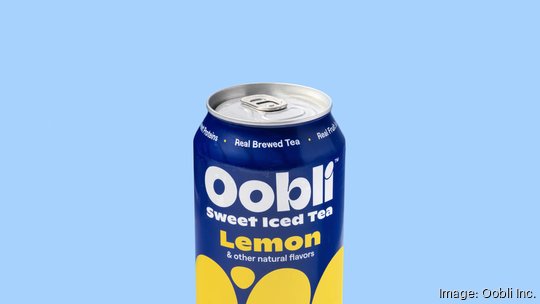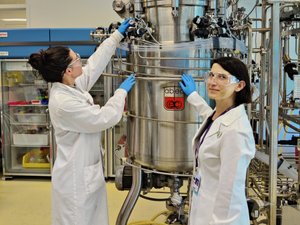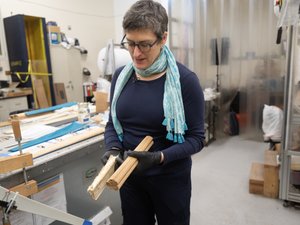
Davis-based Oobli has begun commercializing the research it developed over nearly a decade to create a sweet protein to replace sugar in foods and beverages.
The company is now launching its Oobli-branded sweet tea beverages in test markets including Los Angeles, New York, Chicago and Davis.
“These are the first protein sweeteners in the world to be brought to market,” CEO Ali Wing told the Business Journal. “We want to show you a sweet treat that is way better for your body.”
Oobli has 50 employees, with two-thirds of them working in a 20,000-square foot office in Davis. The company has developed, and won Food and Drug Administration approvals for, protein sweeteners to replace sugar and artificial sweeteners in foods.
Sugar and sugar alternatives are small molecules that tend to have a glycemic effect on the gut, which is not beneficial for the body, especially for people with pre-diabetes or diabetes. Diabetes is emerging as a global health crisis because of the excess use of sugar in foods, Wing said.
Proteins make up half the weight of the human body, and they act fundamentally differently in the gut compared to sugars and artificial sweeteners, Wing said.
Oobli is working with a protein called brazzein, found in the oubli fruit of West Africa, which is 2,000 times sweeter than sugar. Brazzein is difficult to extract from the oubli fruit, so Oobli developed a fermentation process to create a chemically identical protein.
By offering its product as an alternative, Oobli seeks to dramatically reduce the amount of sugar in foods and beverages, Wing said.
“Our bodies were not designed to have that much sugar,” she said.
Oobli can deliver zero-sugar products, but it is starting out with much lower sugar in its initial teas, which get some of their sugar from natural fruit juices or agave, Wing said. The company uses a little bit of fruit juice to achieve a pleasing flavor profile. A 16-ounce can of Oobli sweet tea has 7 grams of sugar, compared to 40 grams of sugar or corn syrup in other name brand sweet teas.
The first commercial product sweet teas are a way to educate the public about protein sweeteners. The company plans to deliver its protein sweeteners to other food producers later this year.
"Stay tuned for a bunch of new products being introduced this fall,” Wing said.
In May of this year, Oobli raised $25 million in a venture capital round led by San Francisco-based Piva Capital. Since its founding in 2014, Oobli has raised a total of $31.9 million, according to venture capital tracking site Crunchbase.
Two years ago, Oobli raised $6.9 million in a financing round led by Evolv Ventures, the venture fund backed by global food giant The Kraft Heinz Co. (Nasdaq: KHC).
Founded in 2014 in Davis with the name Miraculex, the company was working on a protein derived from the miracle berry of West Africa. The company changed its name to Joywell Foods in 2020, and then this year changed its name again to Oobli, which has stronger branding potential, Wing said.
The company is also working on medical applications for some of its sweet proteins, which can help people suffering from therapies like chemotherapy better tolerate flavors and regain their appetites.









